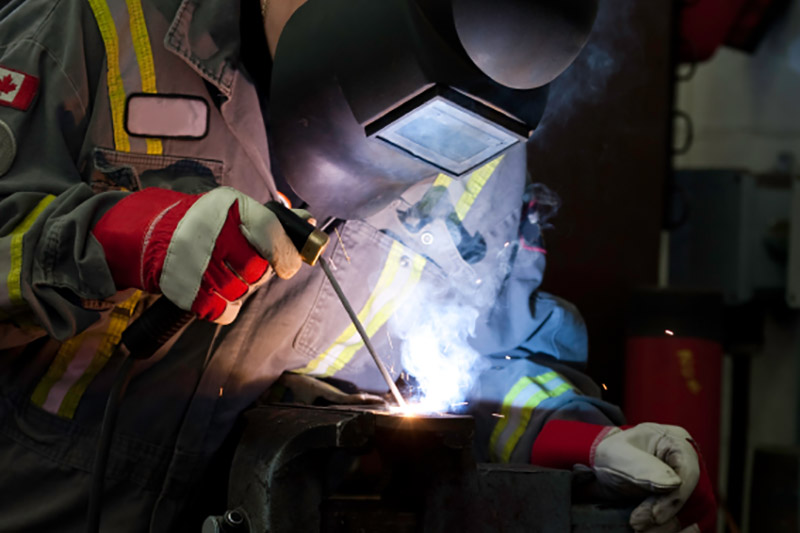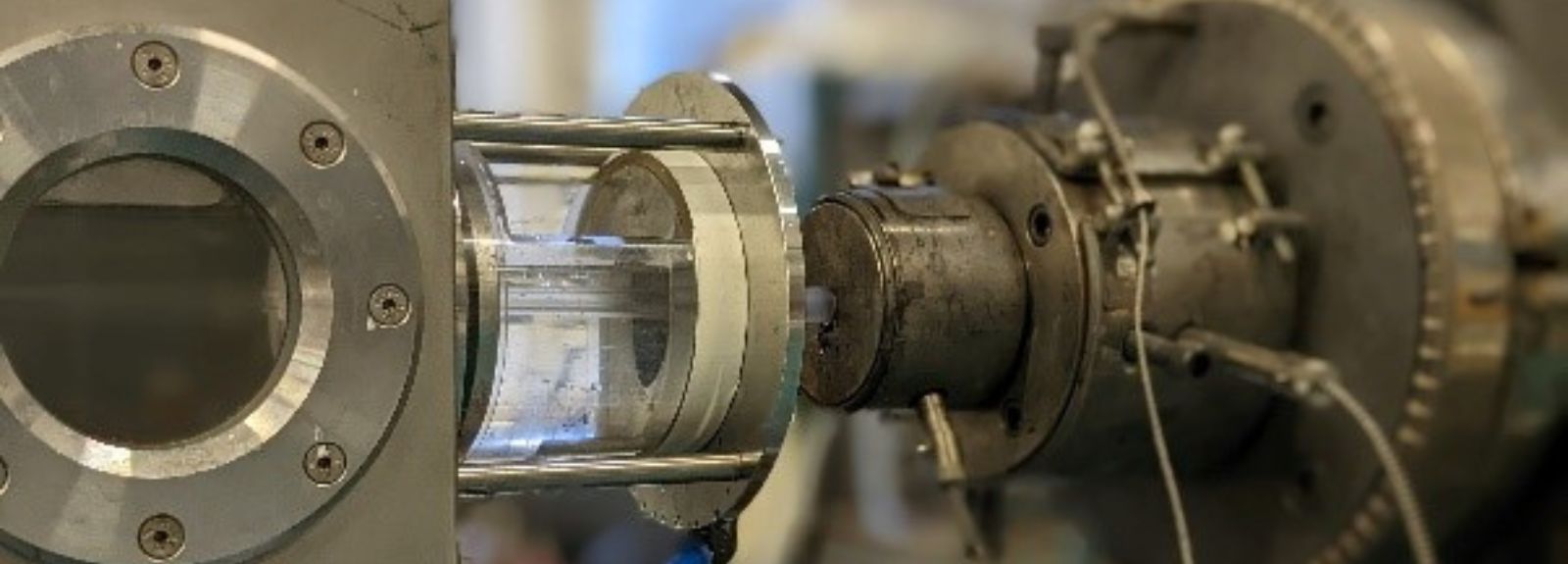
TECHNICAL SERVICES
Our technical services provide members and non-members with access to our scientific knowledge database, our expertise, and a range of equipment essential to developing advanced composites. Services include:
-
MATERIAL CHARACTERISATION
Step into our fully equipped testing facility. Our capabilities span from fundamental mechanical, thermal, and rheological engineering tests to intricate analyses, unravelling a material's unique characteristics. With pre-conditioning facilities ensuring real-life operational accuracy, we delve into microscopic intricacies vital to the polymer and composite processing industries. Whether it's simple testing or complex material qualification, addressing challenges from material identification to heat seal enhancement, and impact strength evaluation, our diverse equipment suite stands ready to support your project.
- DESIGN AND SIMULATION
We’ve developed strong working relationships with industry and academia, along with research technology organisations. Collectively, we’re able to bring together some of the brightest minds in engineering, business and technology to work collaboratively. As well as polymers and advanced composite design expertise, we provide access to state-of-the-art industrial testing and simulation facilities. Here, we can put early-stage technologies through their paces and validate design concepts to identify product and process efficiencies or technology improvements.
- HIGH-PERFORMANCE THERMOPLASTICS
Our deep expertise, forged in the aerospace sector, means few know high-performance thermoplastics like we do. At AMIC, we can blend, test, and process our own polymer compounds including, including PEEK polymer blends, and continuous fibre polymers for a broad range of advanced applications in a wide range of sectors. We can also incorporate nano-additives to tailor or improve the mechanical, thermal, electrical, and resistant properties of thermoplastics for use in extreme or hostile environments – all in a way that helps reduce costs, weight, and manufacturing inefficiencies.
- INJECTION MOULDING
As well as undertaking injection moulding, the Centre is involved in a wide and diverse range of projects in collaboration with local and international companies. These projects range from short-term problem solving and troubleshooting, training and consultancy work, to medium-term development and long term applied and fundamental research. In addition, the Centre is supported by experienced injection-mould toolmakers.
- THERMOFORMING
Thermoforming of sheet material, ready-made or manufactured on site can be carried out.

-
RAPID PROTOTYPING
From conceptual design to proof of concept to virtual manufacturing to tooling development, we use our deep and broad experience in rapid prototyping to quickly establish the feasibility of ideas – in particular, for complex, low-volume products. We can tailor our own materials for 3D fibre deposition, as well as analyse and develop different polymer chain architectures to enable innovation in, and optimisation of, 3D composite structure.
- SUSTAINABLE MATERIALS
We’re focused on working with sectors such as textiles and agriculture, as well as academia and research organisations to establish and shape an exciting vision for a thriving sustainable polymer and composites supply chain in the UK and beyond. A vision that extends from capability at one end of the supply chain, to implementation in end-use applications at the other, and which includes a clear roadmap of the journey to get there.
As momentum to decarbonise economies and reach net-zero emissions gathers pace, government, industry and whole sectors are working to reduce their environmental impact through policies, regulation, and in response to public opinion. What’s more, the inevitable switch away from fossil fuels towards renewables and hydrogen is seeing increasing investment and innovation in sectors ranging from aerospace to construction to defence to energy to transport.
It’s in this context that polymers and composites have a pivotal role to play. This is why we collaborate directly with industry to develop and implement sustainable polymer and composite technologies through:
- Light-weighting applications to reduce emissions
- Naturally sourced, bio-derived materials
- Practical and achievable recycling strategies
- BIO-COMPOSITES and BIO-POLYMERS
Northern Ireland was once a global powerhouse for textiles, as well as for rope for the shipping industry. So, it’s fitting for AMIC to show the way forward in bio-composite technologies and more sustainable supply composite chains. Using naturally sourced fibres, such as hemp and flax and bio-derived resins, we’re innovating to create composites with minimal environment impact and as little embedded carbon as possible.
This is an essential aspect of ‘Design for Sustainability’ and to ensure the next-generation of composite materials are as lightweight, low-carbon, recyclable and environmentally friendly as possible for the next generation of products – from aerospace components to turbine blades to electric vehicles to hydrogen storage and transportation.
- END OF LIFE TECHNOLOGIES
Recycling and waste management of composites and polymers are two of the most pressing matters inside the Circular Economy.
The plastic recycling rate in the UK is approximately 45%, significantly higher than the global rate of 9%. Despite this progress, challenges persist in elevating the recycling figures further. Barriers include the need for enhanced recycling infrastructure, addressing complex material compositions, and improving efficiency in collection and sorting processes.
Due to the diverse nature of their material make-up, composites have always been challenging to recycle. In fact, only 15% of composites produced each year in the UK are recycled or reused, with only 6% ending up in secondary applications.
AMIC has been at the forefront of developments in addressing the challenges of plastics waste and helping the industry find innovative solutions towards recycling. We work with companies to help them better understand the latest recycling technologies, identify bespoke recycling strategies, and implement existing or novel technologies to solve their end-of-life challenges.
- OPERATION NET-ZERO
For the UK to meet its ambitious goal to become net-zero by 2050, manufacturers large and small will need to decarbonise their operations, their manufacturing processes and, as far as possible, their supply chains. At AMIC, we’re combining our test-bedding facilities with what we’re learning on our own net-zero journey to help businesses better understand how to measure their carbon footprint by integrating, for example, energy monitoring into their processes. Ultimately, we’re committed to developing low-carbon best practice and showing, and showcasing, the way forward.
-
ROTATIONAL MOULDING
For more than 30 years our team has been regarded as world leading in Rotational Moulding, with an unrivalled international reputation for high quality fundamental research, coupled with practical relevance. A wide and diverse range of projects are carried out in collaboration with local and international companies.
These projects range from short-term problem solving, training and consultancy work, to medium-term development and long term applied and fundamental research. Subject areas include cycle time optimisation, new process and product development, process control, automation and new material development.
- ADVANCED EXTRUSION
PPRC has specialist design and manufacturing capability in multilayer extrusion blown and cast films, sheets and tubes.
We have expertise in the processing of specialist materials such as engineering polymers, highly filled thermoplastic composites and dispersion and distribution of highly functional active additives through robust and well practised methodologies.
Reliable small to medium scale extrusion and compounding equipment and experienced staff allow high quality research to be carried out from small scale clinical biomaterials, biochemicals and other active agents to larger pilot compounding and extrusion trials.